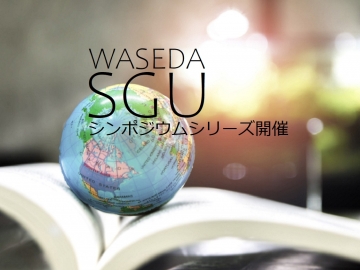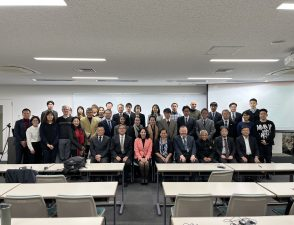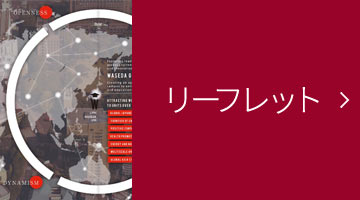日時
2017年12月11日(月) 18:15~19:45
会場
早稲田キャンパス14号館9階960号室
講演者
David Leheny (Professor in the Graduate School of Asia-Pacific Studies at Waseda University)
After receiving his PhD from Cornell University in 1998, he served as assistant and then associate professor of political science at the University of Wisconsin-Madison, and then as the Henry Wendt III ’55 Professor of East Asian Studies at Princeton University. He joined Waseda’s faculty in summer 2017. In addition to his many articles and chapters, Leheny is the author of The Rules of Play: National Identity and the Shaping of Japanese Leisure (Cornell University Press, 2003) and Think Global, Fear Local:Sex, Violence, and Anxiety in Contemporary Japan (Cornell University Press, 2006), as well as the co-editor (with Kay B. Warren) of Japanese Aid and the Construction of Global Development: Inescapable Solutions (Routledge, 2010).
セミナー内容
Shortly after noon on February 8, 2001, the USS Greeneville, a nuclear submarine carrying sixteen “distinguished visitors” as part of a US Navy public relations program, collided with the Ehime Maru, a fisheries training boat operated by Uwajima Fisheries High School, off the coast of Hawaii. Nine Japanese perished, including four high school students. Nearly nine months later, after a long series of plans and technical challenges, the Navy succeeded in raising the boat from its deep water crash site and in locating the bodies of eight of the nine victims. This presentation retells this story by focusing on the ways in which both governments emphasized repeatedly the special emotional needs of Japanese victims’ families and of Japan as a whole.By calling attention to inherent contradictions within these representations as well as to tensions surrounding the victims’ families, it separates emotion itself from its political representation, and suggests that the analytical lens ought to focus on the latter rather than the former.
This presentation draws from one chapter of Leheny’s forthcoming book, The Empire of Hope: Stories, Sentimentality, and Status in Japanese Politics (Cornell University Press, 2018), a challenge to existing theories about the relationships between emotion, affect, and international relations. Studies of emotion and international relations have become increasingly prominent over the past decade, just as research on affect and culture in East Asia has begun to flower as well. This book manuscript challenges current readings of the relationships between emotion and politics by arguing — in contrast to those who build from the neuroscientific turn in the social sciences or those developing affect theory in the humanities — that the focus should be on emotional representation rather than on emotion itself. In this sense, it draws from recent work on emotion and politics by Todd Hall, Lauren Berlant, and Emma Hutchison, but suggests that we can approach emotional representation more effectively by considering how narrative arcs shape the ways in which national sentiment can be articulated and conveyed convincingly. The Empire of Hope builds from a diverse array of cases involving Japan’s postwar narrative: from the Ehime Maru accident to contemporary Japanese theater, and from Japan’s treatment of two conjoined twins from Vietnam who were likely victims of Agent Orange to the ways in which renowned Japanese social scientists engaged the Tōhoku region before and after the 2011 earthquake, tsunami, and nuclear disaster.
Although its focus is on the political world, the book draws from literary theory (particularly from Peter Brooks’s classic conception of “the melodramatic imagination” and from Lauren Berlant’s recent interventions in national sentiment) to augment its emphasis on major scholarship in political science, such as works by Benedict Anderson and T.V. Paul, and more specifically on Japan’s political scene, including recent studies by Richard Samuels, Alexis Dudden, and others. The Empire of Hope thus emphasizes the importance and value of an interpretive approach to emotionality and its relationship to politics, and that we have analytical tools that should shape those interpretations. It shows as well that emotional representation plays several important roles, including the construction of the boundaries of a national community whose members are expected to feel more or less the same way about the same things, the depoliticization of the potentially political and divisive, and the expression of a nation’s status in an uncertain and sometimes menacing world.
コーディネーター
梅森直之(早稲田大学政治経済術院教授)、マニュエル・ヤン(ORIS次席研究員)
言語
英語
対象
学生・教職員・一般
参加費
無料









